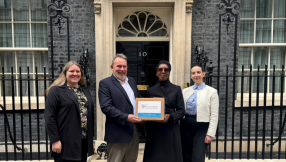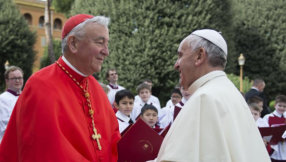David Cameron urged to press Burma on democratic reforms
The Prime Minister is to meet Burma's President Thein Sein and pro-democracy leader Aung San Suu Kyi, whose party won a historic by-election last week.
CSW wants Mr Cameron to use his visit to press for an end to internal conflict, particularly in Kachin State, and for a nationwide, inclusive peace process with all ethnic nationalities in order to secure a durable political settlement.
It is the first time in decades that a Western head of government has visited Burma.
A series of reforms introduced by the President and the country's military-dominated leadership has caused Western countries to reconsider Burma's diplomatic isolation.
Western countries welcomed the by-election, in which Suu Kyi's National League for Democracy won 43 out of the 45 contested parliamentary seats.
Suu Kyi won a landslide victory in her own constituency, Kawhmu, and hailed the results as "the beginning of a new era”.
The election was followed a week later by a historic meeting between President Sein and leaders of the Karen National Union, representing one of Burma's largest ethnic nationalities. The talks were aimed at ending 65 years of civil war.
The regime has held ceasefire talks with other ethnic nationalities and established some ceasefire agreements.
CSW warns, however, that the Burma Army continues to perpetrate "serious human rights violations" in the ethnic state.
In Kachin State, in northern Burma, the military is reportedly carrying out systematic abuses and attacks on ethnic civilians.
The Rohingya people, a predominantly Muslim group who have lived in northern Arakan State for generations, are denied citizenship and are effectively stateless, subjected to severe restrictions and persecution.
CSW’s East Asia Team Leader Benedict Rogers welcomed the Prime Minister’s visit and his continued interest in the situation in Burma.
He said Mr Cameron's visit would be "historic" but also a rare opportunity to remind Burma's leadership that there is still a "long way to go and much more to be done before Burma can be celebrated as a democracy".
Mr Rogers called for all remaining political prisoners to be released and urged the Burmese government to repeal or amend "unjust" legislation.
There also needs to be "substantial" institutional and constitutional reform.
"Ceasefires – an end to active fighting – are not enough, because without a political solution there can be no durable peace," said Mr Rogers.
"The Burma Army must end its practices of forced labour, rape, torture, the destruction of villages, recruitment of child soldiers and killing of civilians; the government, the ethnic nationalities and the democracy movement must hold talks, and a political system which grants the ethnic people equal rights and a degree of autonomy must be established through dialogue.
"These are the points we hope the British Prime Minister David Cameron will make during his important visit.”













